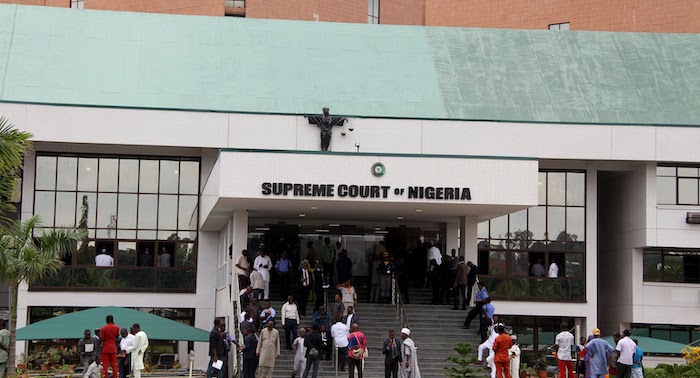The Supreme Court has dismissed a lawsuit filed by 16 states against the Attorney-General of the Federation, challenging the constitutionality of the laws establishing the Economic and Financial Crimes Commission (EFCC), the Independent Corrupt Practices and Other Related Offences Commission (ICPC), and the Nigerian Financial Intelligence Unit (NFIU).
The Court ruled that the suit lacked merit, affirming the legality of these anti-corruption agencies.
EFCC, ICPC, and NFIU found constitutional
Delivering the lead judgment, Justice Uwani Abba-Aji stated that the states were wrong to assert that the EFCC, established by an act of the National Assembly, was illegal or unconstitutional. Justice Abba-Aji, who led a seven-member panel, ruled that the EFCC Act did not require the ratification of state houses of assembly, as it is a national law and not a treaty or convention.
The Supreme Court had earlier dismissed all objections raised by the Federal Government regarding the suit, noting that the matter was properly within its jurisdiction as it involved the Attorney-General of the Federation, not the agencies themselves.
Legal challenge by 16 states
The suit was initially filed by the attorneys-general of 16 states, including Ondo, Edo, Oyo, Ogun, Nassarawa, Kebbi, Katsina, Sokoto, Jigawa, Enugu, Benue, Anambra, Plateau, Cross River, and Niger. While some states later withdrew from the case, others, including Imo, Bauchi, and Osun, joined as co-plaintiffs during the hearing.
The plaintiffs contended that the EFCC Act, passed in 2004, violated Section 12 of the 1999 Constitution, which mandates that certain international conventions require ratification by the majority of state houses of assembly before they can be adopted into Nigerian law. They argued that the law establishing the EFCC and the other agencies was passed without this necessary constitutional procedure, making it unconstitutional.
Plaintiffs’ argument and defense
The plaintiffs, relying on the Supreme Court’s previous ruling in Dr. Joseph Nwobike Vs Federal Republic of Nigeria, argued that the EFCC Act was essentially the implementation of a UN Convention against corruption and that it should have followed the constitutional requirements for ratification by the state assemblies.
In response, the EFCC’s Director of Public Affairs, Wilson Uwujaren, vehemently defended the Commission’s existence, stating that Nigeria could not effectively tackle corruption without it. He argued that those behind the legal challenge were individuals feeling the pressure from the EFCC’s anti-corruption work.
EFCC and ICPC’s role in Nigerian governance
Human rights lawyer Femi Falana also weighed in, asserting that institutions like the EFCC and the ICPC have become essential to Nigeria’s fight against corruption. While acknowledging concerns about their independence, he emphasized that efforts should be focused on ensuring these agencies operate autonomously, without undue government interference.
“The EFCC, ICPC, and Code of Conduct Tribunal have come to stay,” Falana said on Channels Television’s Politics Today. “What we should now demand is autonomy for these institutions, so they are not under the control of any government.”
Legal perspectives
Senior Advocate of Nigeria (SAN) Olisa Agbakoba had previously written to the National Assembly, challenging the constitutionality of the EFCC. In his letter, Agbakoba argued that the National Assembly exceeded its powers in establishing the EFCC, asserting that it was an unlawful body.
“I strongly believe the EFCC was unconstitutionally established,” Agbakoba wrote. “This challenge by the states is crucial in determining the validity of the EFCC once and for all.”
Despite the legal challenge from the states, the Supreme Court’s ruling solidified the position that the EFCC, ICPC, and NFIU are constitutionally established and crucial to Nigeria’s ongoing fight against corruption. The Court’s decision underscores the importance of these institutions in the country’s governance and efforts to combat financial crime.


